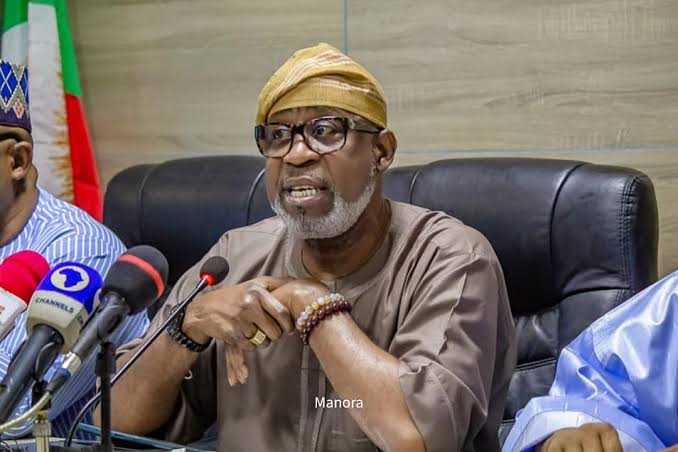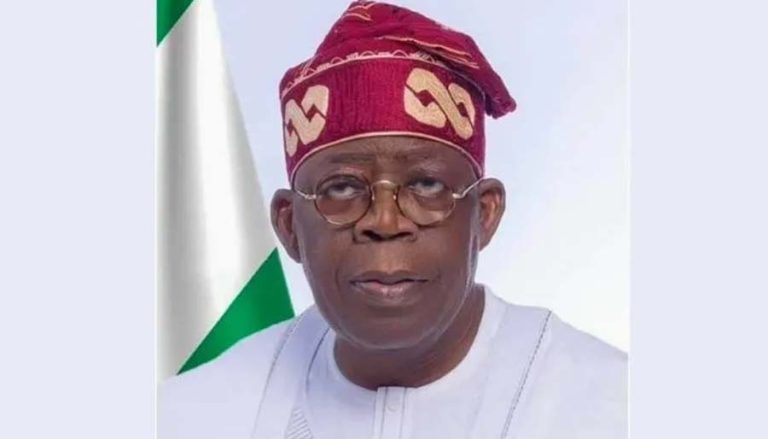Opinions
Dele Alake: A Strategic Gift from Ekiti to Nigeria.By Adesina Adetola

In contemporary political governance and public administration, many things are involved and increasingly relevant. One crucial component of this for a great leader is not just having a good vision, but also in possessing the capacity to rally a community of like-minded people to push through the vision. Essentially, leadership in political governance and public administration makes sense only if the leadership is composed of a team of those who share the same values and philosophy about the growth and development of the society they represent.
From the outset, President Tinubu has manifested a glimpse of a team leader. His style in Lagos State, which heralded a sterling performance and unprecedented development in the State, was greatly built on the foundation of team work exemplified through aggregation of ideas and skills from the best available brains. We have also seen that he has not departed from this time-tested political strategy as it was greatly deployed throughout his electioneering process. Even at international fora where he had gone to share his ideals and manifestoes, Tinubu had given a foretaste of his leadership style anchored on participatory democracy.
Of course, the recently cleared Minister-designate of the Federal Republic of Nigeria, Dele Alaka, has been a formidable member of this strategic political evolution. Since Alake burst into the political limelight when he served as the communication advisor to Chief MKO Abiola, the winner of the annulled June 12 presidential election in 1993, he has remained in the public reckoning by deploring his communication wizardry and expertise to broaden the nation’s political engagement.
The Ekiti born, seasoned political tactician and communication strategist has not only made his mark in expanding the frontier of journalism profession, he has enriched the nation’s political space through incisive and penetrating commentaries and discussions. For instance, the popularity and the precision of the campaign messages, as well as the potency and efficacy of the communication strategies that immensely contributed to the victory of the late business mogul, were not unconnected to the handiwork of Alake’s professional intelligence and political wisdom.
He initially gained confidence of MKO Abiola on the strength of the quality of his communication skills and managerial acumen that the late publisher had to request of him to join his Concord Press, the then publishers of the Concord Group of Newspapers, owner of the National Concord and Sunday Concord, from the Lagos State Broadcasting Corporation. Since then, for Dele Alake, the ink has been kept permanently on paper.
Just like a golden fish that has no hidden place, Alake’s skills and tactics have continually remained protuberant. Though MKO’s election was unfortunately and controversially annulled, this never stopped Alake but rather reinvigorated his passion in ensuring a democratic governance in the country. In this regard, he joined forces with other patriots and pro-democracy activists in the National Democratic Coalition of Nigeria, (NADECO) to press for the disannulment of the June 12, 1993 election. Their audacity to look at the military junta in the face eventually forced him and others into exile.
At the return of democracy in 1999, based on his antecedents and proven track records, it was not unexpected that he would be one of the main actors in the engine room of one of the most formidable political structures in the country.
Remarkably, the electoral success of Asiwaju Bola Tinubu in 1999 as the Governor of Lagos State and his consequent outstanding eight-year-tenure saw Dele Alake playing prominent and pivotal roles. And later, although he operated from the background, the efforts that resulted to the formation of the most successful amalgamation of a number of opposition parties in the country, that birthed the current ruling APC, had Alake’s resounding impacts and strategic contributions.
Consequently, in December 2014, Dele Alake became the Director of Media and Communication of the Buhari Campaign Organisation, the Presidential flag-bearer of the APC. This was where his in-depth knowledge of Nigeria’s political terrain once again came to bear in helping the Nigeria’s former Head of State, General Muhammadu Buhari to victory in the presidential election in Nigeria in February 2015.
Coming to the current administration, the roles that Dele Alake played in the emergence of President Bola Tinubu can never be overemphasized. As one of the main driving forces behind the President’s Renewed Hope Agenda, together with the presidential team, he brought to the fore his understanding and experience in Nigerian socio-political arena to concertedly address the challenges facing the nation and work on the prospects of her potential.
More relevantly, it is good to note that Dele Alake did not just drop from the sky. He is a proud son of Ekiti. Born to an educationist and disciplinarian family of Michael O. Alake of Ikoro-Ekiti, the current headquarters of Eso-Obe Local Council Developmental Area of the State. Just like his father who was also a down-to-earth Ekiti man with utmost interest in development of Ekiti people throughout his lifetime, Dele Alake as a thoroughbred Ekiti individual, has never hidden his love for Ekiti and his commitment to everything that would bring progress and joy to his people. There is no doubt that he is a good product of a typical Ekiti society. With his strategic combination of native intelligence with professional sagacity, he has continuously been one of the best gifts Ekiti is giving to Nigeria in this current political dispensation.
It is also noteworthy that Dele Alake in every part of his approach, has never put selfish interest above communal agenda. More importantly, his genuine adherence to Ekiti core values and Omoluabi ethos is never ambiguous. This was in full display in the course of the senatorial race for Ekiti Central in 2010 general elections, when he let go, by clearly shown absence of desperation in his political pursuit.
On a final note, as we highlight the roles of the seasoned political tactician and timeless communication strategist, as well as celebrate his achievements cum contributions to the development and sustenance of democratic governance in Nigeria, we must also not forget that today, globally; politics, political governance or public administration is evolving. . Principal actors have come to realise that strategic communication has become a major tool in driving successful electioneering process and projecting good governance. Nigeria is no exception; most successes of electoral campaigns and political victories are today traceable to formidable and systemic approach employed. And more relevantly, in building a team for a progressive development, especially, in a democratic governance, consistency in loyalty as typified by Dele Alake’s political trajectory, remains a formidable key. As we await the designation of portfolios to the 49 minister designates with baited breath, we have the expectation that Nigeria and Nigerians will, no doubt, be treated to a 4-year of strategic communication, irrespective of where it pleases Mr. President to put him.
Adesina Adetola, a public affairs analyst and socio-economic development expert writes from Ekiti State.






